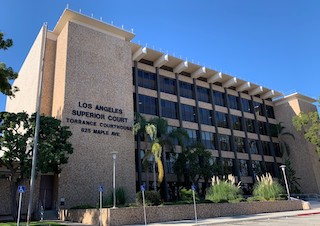In our experience, a client will often tell us, “there must be a video from the store” “the cell phone towers will show where I was – I have an alibi” or “this should be easy to prove – just get the Facebook posts to show the jury” or “just subpoena her personnel file from her employer.”
We often want to reply, “Well, that is easier said than done.”
Indeed, getting documents and videos can be difficult, particularly if the source of the evidence is located outside California. It can be equally difficult to subpoena a “third party” witness to court or to one’s law office for a deposition to preserve testimony.
Brief Synopsis: Having a third party preserve evidence and then share it may not always be possible in certain factual patterns, so it is good to understand generally what is and is not possible.
This article is meant to address this issue and, in a series of articles, will try to cover the “nuts and bolts” of such “discovery.”
The underlying assumption behind asking for any item is trust that the evidence is preserved, i.e., the video was not taped over or deleted, or the documents are not periodically destroyed or purged.
This assumption may not be valid. The general rule is that there is no duty to preserve evidence until the owner of the property is served with a deposition subpoena. In re Napster, Inc. Copyright Litig. (N.D. Cal. 2006) 462 F. Supp. 2d 1060, 1068. If a third-party, i.e., a bar owner that may have a security video, city that operates a traffic light video camera or a website like Facebook, is aware of a pending criminal case that might need evidence that third party has, this is insufficient to trigger preservations duties. Temple Cmty. Hosp. v. Superior Court (1999) 20 Cal. 4th 464, 476-477.
However, there are situations where the duty to preserve evidence may arise before being served with a formal subpoena. For example, there may be an applicable statute or contract that imposes such a duty. Temple Cmty., supra, at 476; see also Cooper v. State Farm Mutual Automobile Ins. Co. (2009) 177 Cal. App. 4th 876, 882 (finding nonparty State Farm owed plaintiff a duty to preserve evidence by voluntarily undertaking to preserve the evidence “when it made the promise to preserve the tire and plaintiff relied thereon”); Lofton v. Verizon Wireless (VAW) LLC (N.D. Cal. 2015) 308 F.R.D. 276 (VAW had a duty to preserve electronically stored information (ESI) before being served a subpoena because preservation obligations were triggered when VAW was previously involved in a similar lawsuit).
 Torrance Courthouse
Torrance Courthouse
What we at Greg Hill & Associates immediately often do after being retained is send a “Duty to Preserve Evidence” letter to the third party that might have custody and control over certain evidence our client needs. Such a letter may also trigger a duty to preserve. Messenger, “Non-Party Discovery is California,” 12 (Robins Kaplan LLP ed., 2015).
Notwithstanding the foregoing obligations, the California Supreme Court has held, absent a special relationship (e.g., statutory or contractual), a nonparty will not be liable for intentional third-party spoliation of evidence where it fails to preserve evidence unless a party makes a specific request before the destruction of evidence. Temple Cmty., supra, at 477.
Consequently, one should promptly serve a subpoena after sending such an informal “Notice to Preserve” letter as we do.
The next issue is can the third-party receiving the subpoena disobey the subpoena or ask a judge to rule that it is too burdensome, overbroad, vague or seeks privileged communications, or invades certain protected privacy rights? The answer is in state court, yes, but in federal court, no. See Cal. Civ. Proc. § 1987.1 (“A motion to quash a deposition subpoena for production of documents may be made by a party.”) This right in state court extends to consumers or employees who may challenge a nonparty deposition subpoena seeking their consumer or employee records. Cal. Civ. Proc. § 1985.3(g), 1985.6(f).
Such a challenge must be done carefully, as monetary sanctions can be imposed by a judge for a challenge that the judge regards as frivolous or made without a good faith substantial justification. Such sanctions may include payment of the prevailing party’s expenses and reasonable attorney fees incurred on the motion to quash. Hon. Lee Smalley Edmon, Hon. Curtis E.A. Karrow, “Cal. Prac. Guide: Civ. Proc. Before Trial,” § 8:602.10 (The Rutter Group 2020) Cal. Civ. Proc. Code § 1987.2(a).
For more information about subpoena issues, please click on the following articles:
 Torrance Courthouse
Torrance Courthouse